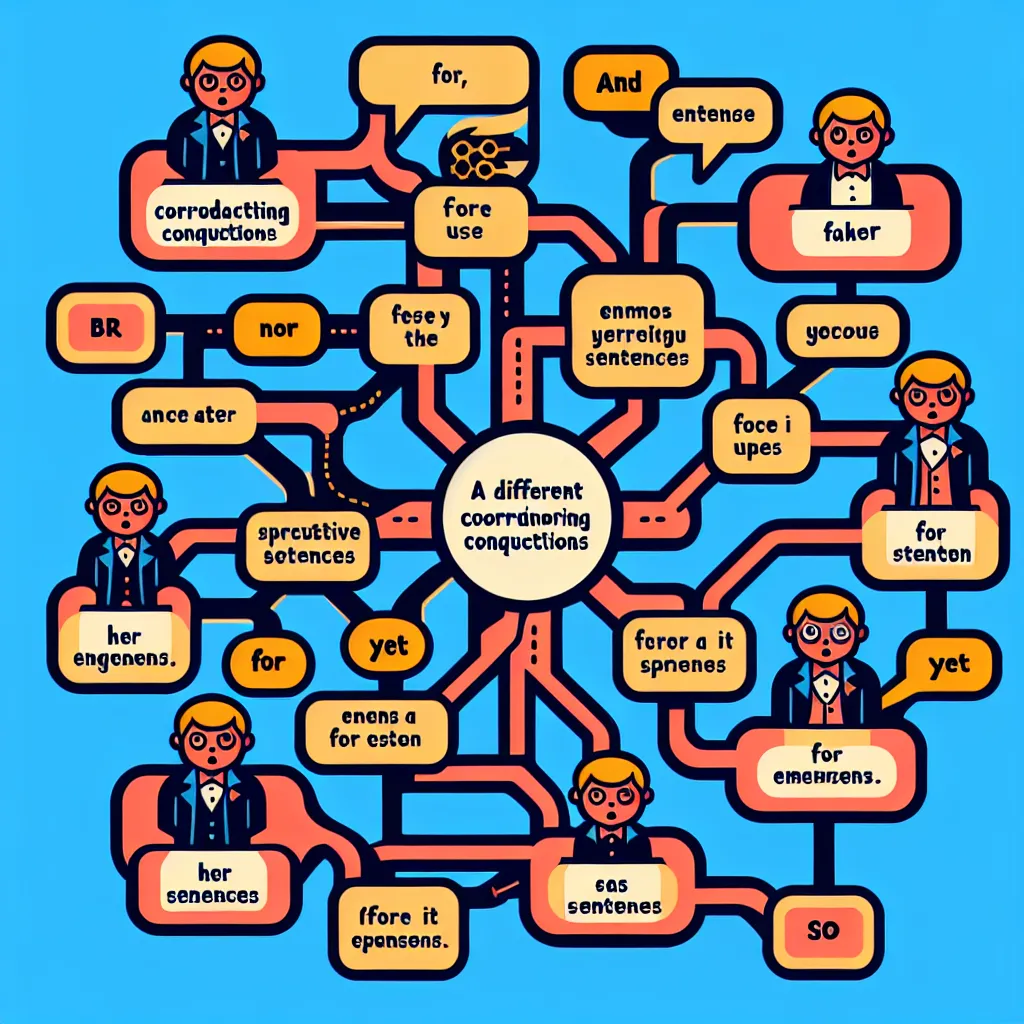Coordination, pronounced /koʊˌɔːrdɪˈneɪʃn/, is a noun that plays a crucial role in both everyday communication and academic English. In the context of language and IELTS preparation, coordination refers to the grammatical connection of words, phrases, or clauses of equal importance within a sentence. Let’s delve into this essential concept and explore how mastering it can significantly boost your IELTS performance.
Understanding the Context of Coordination
Coordination is ubiquitous in English, appearing in various contexts from casual conversations to formal writing. In IELTS, it’s particularly important for constructing complex sentences and demonstrating linguistic versatility.
Examples of Coordination in Use
-
The sun was shining, and the birds were singing.
Here, coordination links two independent clauses using the coordinating conjunction “and”. -
She is both intelligent and hardworking.
This example shows coordination between two adjectives using “both… and”. -
We can either go to the beach or visit the museum.
Coordination is used here to present two options with “either… or”. -
The project was challenging but rewarding.
This sentence coordinates contrasting ideas using “but”. -
He not only wrote the script but also directed the film.
Here, “not only… but also” is used to emphasize both actions.
In IELTS, coordination is frequently encountered across all sections. In the Reading and Listening tests, understanding coordinated elements helps in comprehending complex sentences. For Writing and Speaking, using coordination effectively can enhance the sophistication of your language use.
Analyzing Coordination
Structure of Coordinated Elements
Coordination typically involves:
- Coordinating conjunctions (FANBOYS: For, And, Nor, But, Or, Yet, So)
- Correlative conjunctions (Both… and, Either… or, Neither… nor)
- Punctuation (commas, semicolons)

Synonyms and Related Concepts
- Synonyms: Connection, linking, joining
- Related concepts: Subordination, parallelism, sentence structure
Understanding these related terms can help you develop functional strength in your English language skills, allowing for more varied and sophisticated expression.
Techniques for Remembering Coordination
Mind Mapping
Create a mind map with “Coordination” at the center, branching out to different types of coordinating conjunctions and their uses. This visual representation can help solidify your understanding.
Mnemonic Devices
Remember the coordinating conjunctions using the acronym FANBOYS:
- F: For
- A: And
- N: Nor
- B: But
- O: Or
- Y: Yet
- S: So
Practicing Coordination
Application Exercises
-
Combine the following sentences using coordination:
- The weather was cold. It was raining.
- She likes coffee. She prefers tea.
-
Write a paragraph about your hobbies using at least three different coordinating conjunctions.
-
In IELTS Writing Task 2, practice using coordination to link ideas in your essay. For example:
“Environmental protection is crucial, yet economic growth remains a priority for many nations.”
Repetition and Review
Regularly incorporate coordination into your English practice. Try to use a variety of coordinating conjunctions in your daily writing and speaking. This functional training approach will help embed these structures in your language use.
Conclusion
Mastering coordination is essential for achieving a high score in IELTS. It allows you to express complex ideas clearly and concisely, demonstrating a sophisticated command of English. By understanding the various forms of coordination and practicing their use, you can significantly enhance your language skills.
Remember, coordination is not just about connecting words; it’s about connecting ideas effectively. As you prepare for IELTS, focus on how coordination can help you articulate your thoughts more precisely and elegantly. This skill will not only serve you well in the test but also in your future academic and professional endeavors.
We encourage you to practice using coordination in your everyday English. Try crafting sentences that use different coordinating conjunctions and share your experiences in the comments below. How has learning about coordination improved your English? What challenges do you face when using coordinated structures? Your insights could help fellow learners on their IELTS journey!